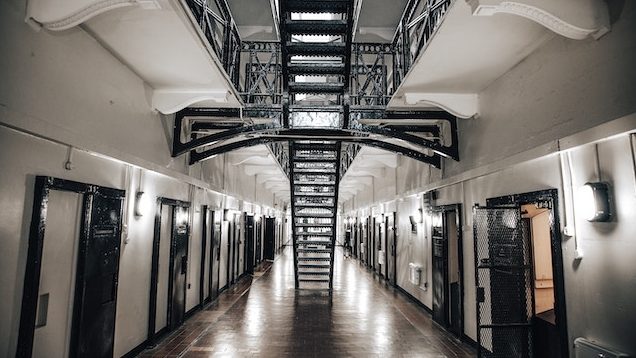Passed by the U.S. Congress on January 31, 1865, the 13th Amendment to the US Constitution abolished slavery. But, due to an exception clause, the amendment allowed slavery to remain legal as punishment for a crime, thus allowing states to extract free labor from prisoners. Today, in the U.S., more than 65% of those incarcerated say they are forced to work in prison for little or no pay, while their labor generates billions of dollars each year for governments and private companies.
In collaboration with the University of Chicago, the American Civil Liberties Union (ACLU) developed “Captive Labor: Exploitation of Incarcerated Workers,” a study on prison labor across the country. The study’s conclusions are stark: prison labor is inherently coercive and exploitative. Incarcerated workers are not protected by standard labor laws, including minimum wage, overtime protection, the right to unionize, and workplace safety guarantees. The lack of training and adequate protective equipment, and poor working conditions lead to considerable health and safety risks.
The Guardian reviews some of the most salient indications and testimonies of incarcerated people that demonstrate systematic exploitation in the U.S. According to this report, as well as public records, questionnaires, and interviews, almost two-thirds of all prisoners – representing 800,000 people – have jobs in state and federal prisons.
The value of a captive and exploited workforce
The Guardian quotes Jennifer Turner, one of the report’s lead authors:
“State governments and the prison system are extracting tremendous value from a captive and exploited workforce all while claiming they can’t afford to pay them a liveable wage.”
According to the report, incarcerated workers earn an average of between 13 cents and 52 cents per hour. What’s more, most of their wages are often withheld for taxes, room and board, and court costs. Seven states – Alabama, Arkansas, Florida, Georgia, Mississippi, South Carolina, and Texas – pay nothing for most prison labor.
The Guardian quotes Latashia Millender, who is incarcerated in an Illinois prison:
“We are saving [the prisons] millions of dollars and getting paid pennies in return … All the jobs we are doing in prison are not really benefiting us; it is more benefitting the prison system. I work a job making $450 for a whole year.”
The numbers in the forced labor prison industry
More than 75% of the workers interviewed by ACLU investigators noted that if they are unable or refuse to work, they receive punishments, ranging from solitary confinement to loss of family visits to denial of sentence reductions.
Furthermore, the vast majority are not provided with skills and training to obtain employment upon release from prison: 70% of interviewees noted that they received no formal job training, and 70% said they could not even buy essentials such as soap or pay for phone calls with their wages.
Incarcerated individuals in prison industry programs across the country generated $2.09 billion worth of goods and services in 2021. In addition, the report estimates that inmate maintenance labor is worth $9 billion a year but cautioned that no centralized data on the value of this labor is available and that the figure was likely a rough underestimate based on previous studies.
Freedom United invites you to take action to address this situation by calling for an end to the punishment clause in the 13th Amendment to the U.S. Constitution. In addition, we are calling on all sectors to divest and end contracts with abusive facilities and to reform contracting so that incarcerated people and immigrant detainees are paid fair wages.







Freedom United is interested in hearing from our community and welcomes relevant, informed comments, advice, and insights that advance the conversation around our campaigns and advocacy. We value inclusivity and respect within our community. To be approved, your comments should be civil.